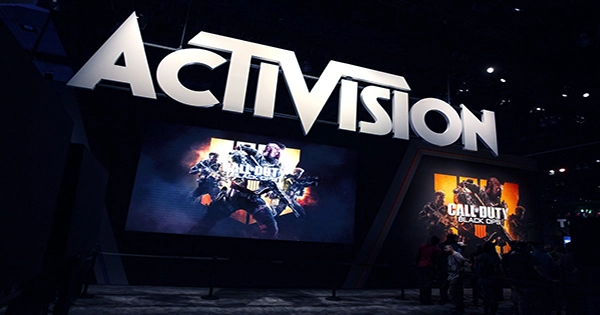Activision Blizzard Inc.’s planned $68.7 billion acquisition by Microsoft Corp. encountered another roadblock on Tuesday when a group of gamers filed a legal complaint against the transaction.
Less than two weeks prior, the Federal Trade Commission filed a lawsuit to prevent the merger of one of the largest video game publishers in the world with the company that makes the Xbox gaming machine. This federal antitrust case was filed in San Francisco. Activision is not named as a defendant in the latest lawsuit, only Microsoft.
The gamers are asking for a court injunction to stop the firms from completing the purchase, much like the FTC has done. Concerns that the acquisition will give Microsoft sufficient influence over various gaming industry levels “to foreclose rivals, limit output, diminish customer choice, raise prices, and further hinder competition” are cited in their complaint.
“Microsoft already controls one of the industry’s most popular and largest video game ecosystems,” the suit says. “The proposed acquisition would give Microsoft an unrivaled position in the gaming industry, leaving it with the greatest number of must-have games and iconic franchises.”
In a statement provided to Bloomberg Law on Tuesday, a Microsoft representative justified the deal.
The agreement, according to the statement, “will increase competition and open up new opportunities for gamers and game creators as we work to reach a wider audience with more games.”
The planned merger, according to the complaint, would give Microsoft excessive dominance in the overlapping product segments of the industry, including console, PC, cloud-based, and mobile gaming. Additionally, it is said that the tech giant would gain an advantage in marketplaces for premium “AAA” games, subscription services, and consoles themselves.
The gaming divisions at both companies are already the result of past major mergers reflecting “a dramatic wave of consolidation” following a “long history of concentration” in gaming markets that continues to threaten the sector’s competitive landscape, the suit says.
Furthermore, the merger would purportedly unite two of the few significant businesses that are now in competition for employees with the “specific talent” needed to create video games. At a time when Activision is “engulfed in lawsuits” over its poisonous culture of gender discrimination and sexual harassment, this would restrict employee mobility and leverage at the exact wrong time.
This accusation is reminiscent of a separate shareholder lawsuit that took a different stance against the purchase. The firms are accused of arranging a low-priced merger to take advantage of Activision’s workplace troubles and shield its ailing CEO in the investor complaint, which was brought by a Swedish state-run pension fund that owns Activision stock.
The Northern District of California US District Court received the antitrust action that was filed there.
















